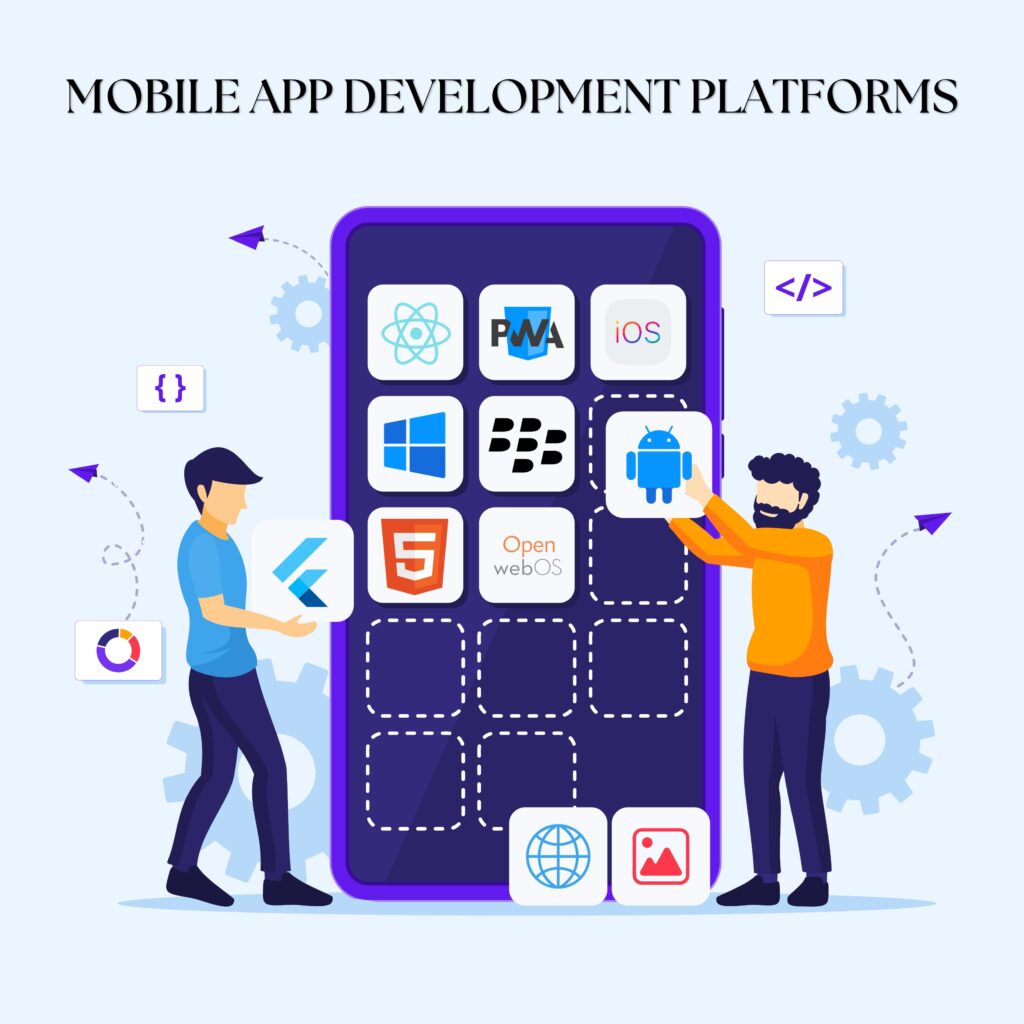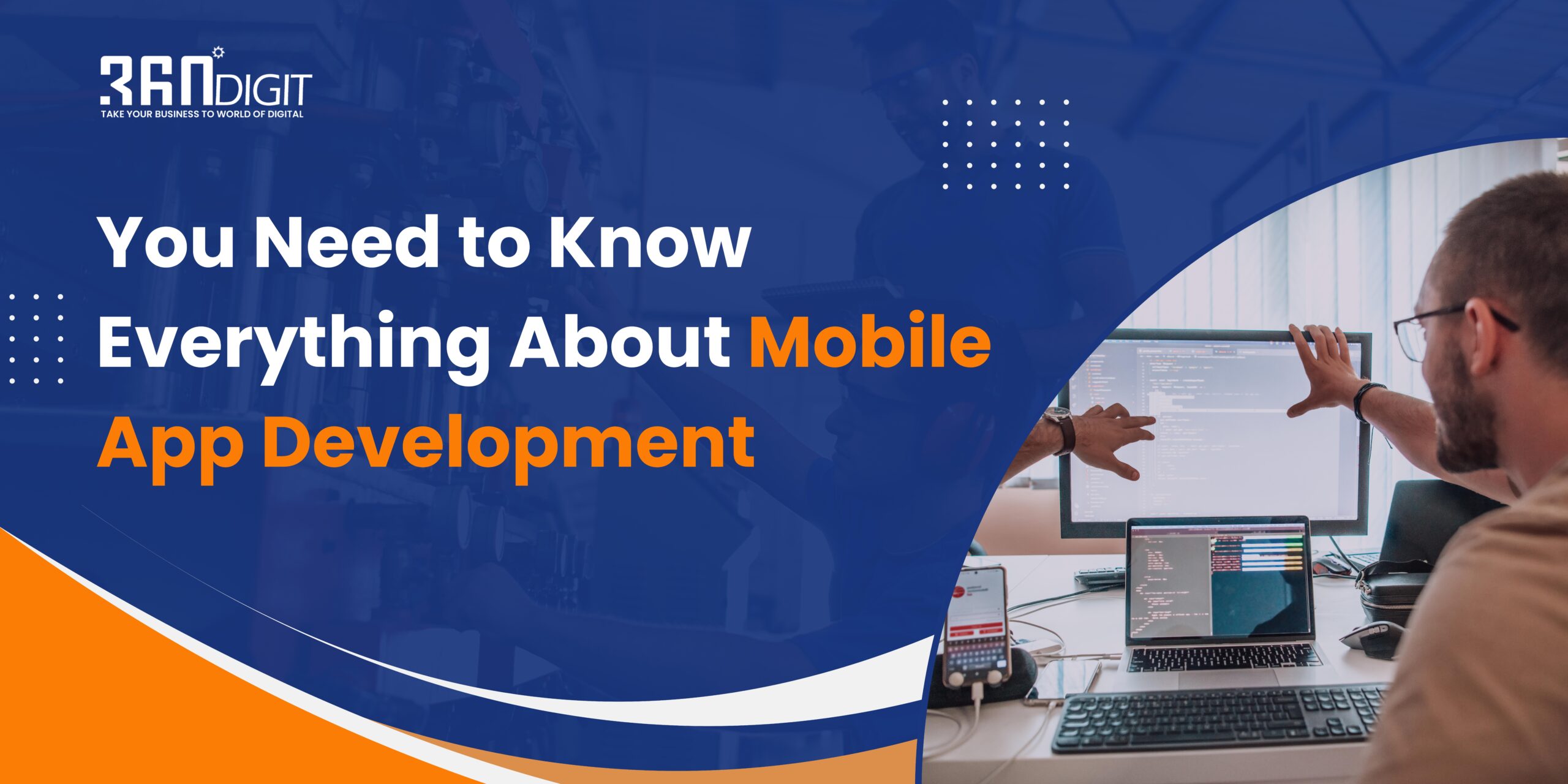What Is Mobile App Development?
An app for a smartphone or tablet is created by developing software specifically for mobile devices. Mobile app can be developed for various platforms, including iOS (Apple’s operating system) and Android, as well as cross-platform solutions that work across multiple devices.
There are several stages involv in the development of a mobile app:
Planning and Research
App objectives and requirements are defined in this stage, along with the app’s features and functionality, through market research.
Design
In this stage, the app’s user interface (UI) and user experience (UX) design are create
. Designers focus on creating visually appealing and intuitive interfaces that are easy to navigate and provide a seamless user experience.
Development
The development stage involves writing the code and building the app according to the design specifications and requirements. Programming languages use by iOS developers include Swift and Objective-C, while Android developers use Java and Kotlin.
Testing
The app undergoes rigorous testing once it has been develope to identify bugs, errors, and usability problems. Users may be asked to test software for functionality, performance, compatibility, and user acceptance.
Deployment
After testing is complete and any issues are resolve, the app is prepare for release and deployment to the respective app stores, such as the Apple App Store or Google Play Store. Developers must adhere to the guidelines and requirements of each app store to ensure a successful launch.
Maintenance and Updates
Once the app is launche, ongoing maintenance and updates are require to fix bugs, address security vulnerabilities, and add new features or enhancements. Developers must monitor user feedback and analytics to continuously improve the app and ensure it remains relevant and competitive in the market.
Mobile app development requires a combination of technical skills, creativity, and strategic thinking to create successful and impactful apps that meet the needs of users and achieve the objectives of businesses or organizations.
What Are The Best Mobile App Development Platforms?
The choice of mobile app development platform depends on various factors such as project requirements, target audience, budget, and development team’s expertise.

Here are some of the best mobile app development platforms commonly used in the industry:
IOS (Apple)
Apple’s iPhone, iPad, and iPod Touch are powered by iOS, its mobile operating system. IOS app development is typically done using Apple’s proprietary programming languages, Swift and Objective-C, along with the Xcode Integrated Development Environment (IDE). IOS apps are known for their high quality, security, and performance, making them a popular choice for businesses targeting affluent demographics or seeking to monetize through the Apple App Store.
Android (Google)
A wide range of smartphones and tablets run the Android operating system, which Google develope. Open-source operating systems for smartphones and tablets are based on the Android platform develope by Google. Android apps are typically written in Java or Kotlin using Android Studio. Android apps offer a larger market share and global reach, making them an attractive option for businesses looking to reach a broad audience across different devices and regions.
Cross-Platform Frameworks
Cross-platform development frameworks allow developers to write code once and deploy it across multiple platforms, including iOS and Android.
Popular cross-platform frameworks include:
React Native
Using JavaScript and React, developers can create native mobile apps with React Native. It offers a high level of code reusability and performance, making it a preferre choice for many businesses.
Flutter
With Flutter app development, you can build natively compile applications for desktop, web, and mobile from a single codebase. It offers a fast development cycle and an expressive user interface using the Dart programming language.
Progressive Web Apps (PWAs)
PWAs are web applications that use modern web technologies to provide a native app-like experience on mobile devices. PWAs are accessible through web browsers and can be installe on the user’s device, offering features such as offline support, push notifications, and home screen icons. They are a cost-effective and scalable option for businesses looking to reach users across different platforms without the need for app store approval.
Ultimately, the best mobile app development platform depends on factors such as project requirements, target audience, budget, and development team’s expertise. Businesses should carefully evaluate their options and choose the platform that best aligns with their goals and priorities.
There are various types of mobile applications
Native Apps
Native apps are built specifically for a particular mobile operating system (e.g., iOS or Android) using platform-specific programming languages and development tools. In addition, they are highly responsive, offer a great user experience, and have device-specific capabilities. Examples include the Facebook app for iOS and Android, Instagram for iOS and Android, and Google Maps for iOS and Android.
Web Apps
Web apps are accesse through a mobile web browser and run on a web server. They are essentially websites optimize for mobile devices and do not require installation from an app store. Web apps offer cross-platform compatibility and are easier to develop and maintain compare to native apps. Examples include mobile versions of news websites, online shopping platforms, and social media sites.
Hybrid Apps
Native and web apps are combine in hybrid apps. They are built using web technologies such as HTML, CSS, and JavaScript, but are package as native apps and distribute through app stores. Hybrid apps offer cross-platform compatibility and access to device features through plugins or APIs. Examples include the LinkedIn app, Evernote, and the Gmail app.
Enterprise Apps
Enterprise apps are designe specifically for use within an organization to streamline business processes, improve productivity, and enhance communication and collaboration among employees. They may include features such as employee directories, task management, time tracking, expense reporting, and access to corporate data and systems. Salesforce Mobile, Microsoft Teams, and Slack are a few examples.
Gaming Apps
Gaming apps are designe for entertainment purposes and offer a wide range of interactive experiences, including casual games, puzzles, strategy games, and multiplayer games. They often feature high-quality graphics, immersive gameplay, and social features such as leaderboards and multiplayer modes. Examples include Candy Crush Saga, Clash of Clans, and Fortnite.
Utility Apps
Utility apps serve specific practical purposes and offer functionalities that users find useful in their daily lives. They may include tools for productivity, finance, health and fitness, navigation, weather forecasting, and language translation. Examples include banking apps, fitness trackers, weather apps, and language learning apps.


Leave a Comment